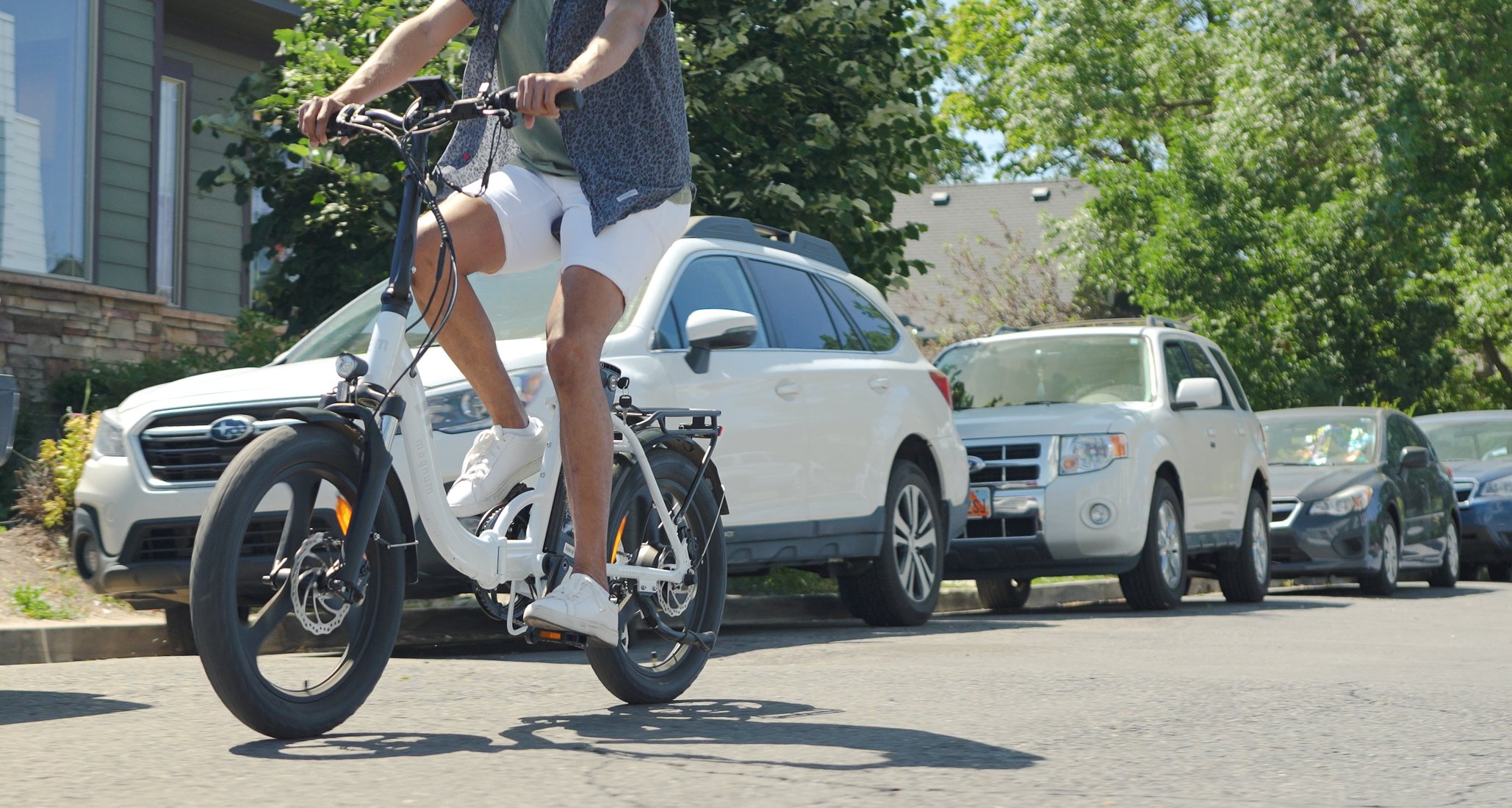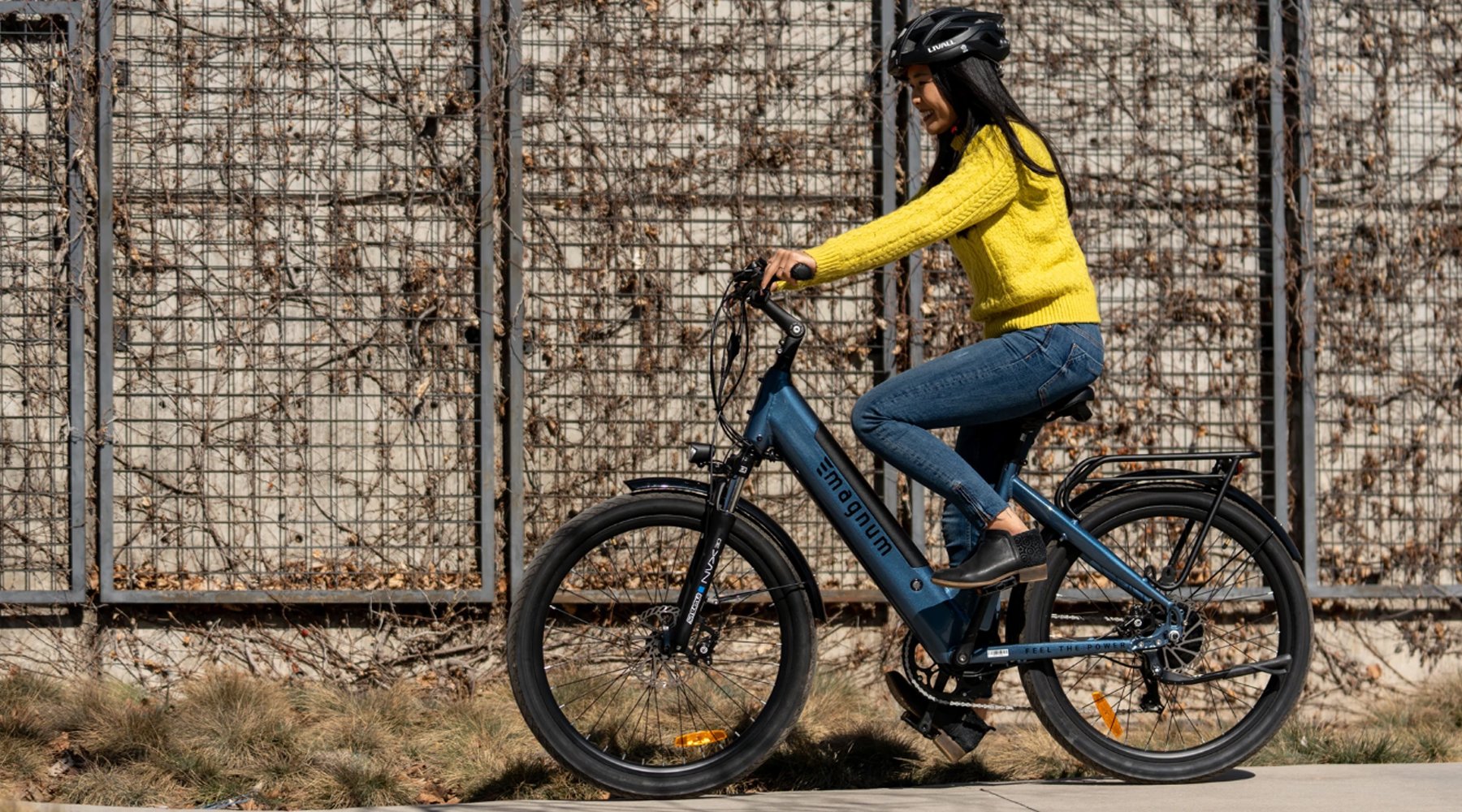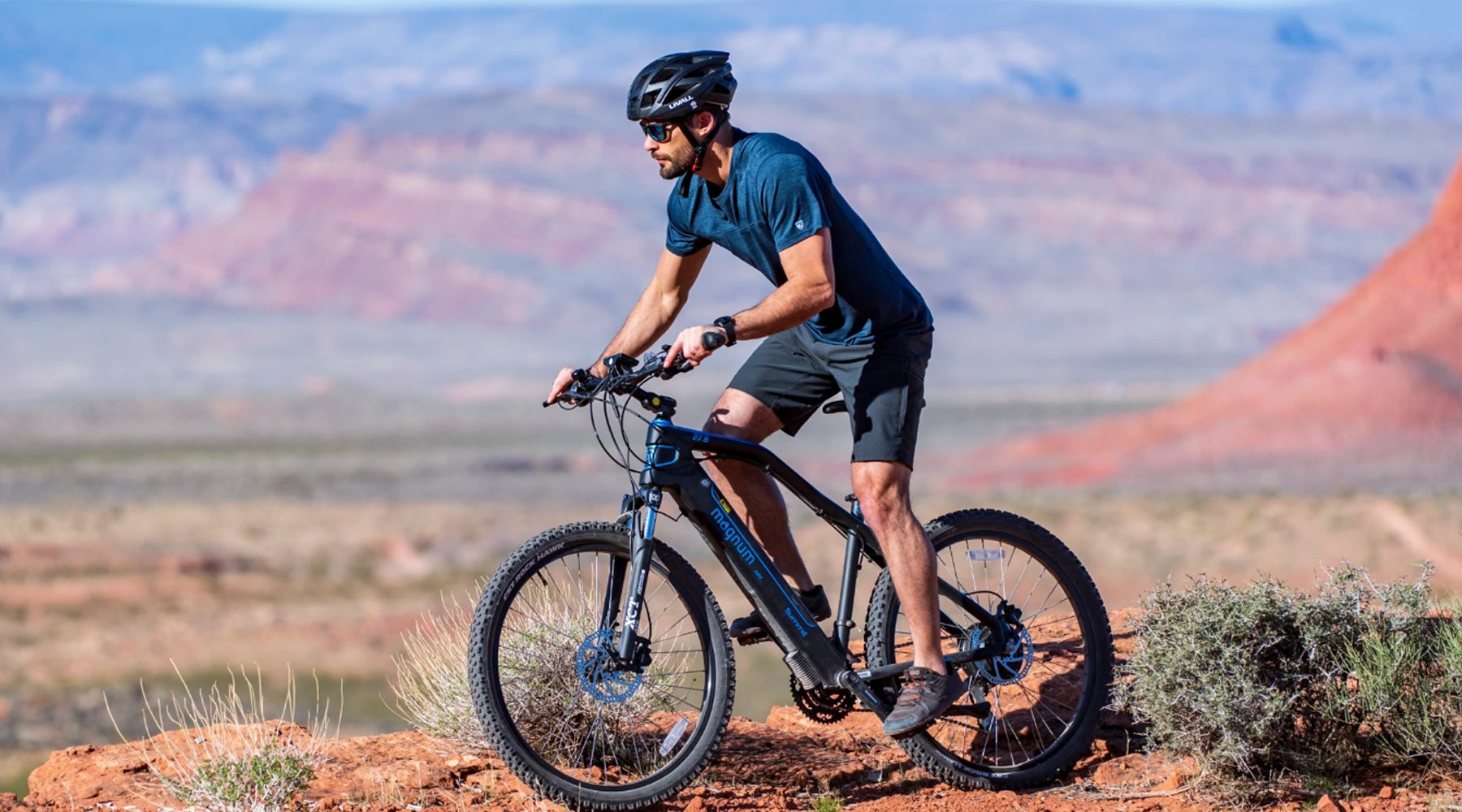Mechanical Vs. Hydraulic Brakes: How To Choose
Whether you’re shopping for your first e-bike or adding to your collection, it pays to know your braking preferences. Let’s look at how mechanical brakes and hydraulic brakes differ. Then we’ll help you determine which system might be right for you!
You can also find the sections you’re most interested in here:
What Type Of Brakes Are Best On An E-Bike?
Why You Might Prefer Mechanical Brakes
Why You Might Prefer Hydraulic Brakes
Which Magnum Bikes Have Mechanical Vs. Hydraulic Disc Brakes?
What Are Mechanical Brakes?
When you squeeze the brake levers on your mechanical brake system, you’re delivering force through brake cables. That force travels directly through the cables, squeezes the brake pads against your rotor, and stops the bike.
With mechanical brakes, the force you apply to the brake lever translates directly to your brake. That means if you need to stop quickly or completely, you need to squeeze hard. But be careful — applying the full force of the brakes suddenly can be dangerous.
For more about mechanical brakes and how to care for them, check out our post all about mechanical brakes.
What Are Hydraulic Brakes?
What happens when you engage the brake levers on an e-bike with hydraulic brakes? You push brake fluid through the hoses on your bike. (The etymology of “hydraulic” is related to fluids in motion.) The pressure of the brake fluid squeezes your brake pads; your brake pads press against the rotor and stop your bike.
Unlike mechanical brakes, the force you apply to hydraulic brake levers is multiplied once it reaches your brakes. That makes hydraulic brakes more responsive overall, which can take some getting used to! You may find that hydraulic brakes bring your bike to a more rapid stop with less brake lever force compared to mechanical brakes.
To learn more about hydraulic brakes, including maintenance, see our hydraulic brakes blog post.
What Type Of Brakes Are Best On An E-Bike?
Neither mechanical nor hydraulic brakes are inherently better. It’s all about what matters most to you!
Here are some conditions and preferences that might have you leaning toward one type over another.
 The best e-bike brakes are the ones you’re most comfortable with. Pictured: Premium 3 Low Step.
The best e-bike brakes are the ones you’re most comfortable with. Pictured: Premium 3 Low Step.
Why You Might Prefer Mechanical Brakes
Including a few facts we’ve already mentioned, mechanical brakes are a great choice if:
You Prefer A Gentler Braking Experience
You want great brakes (of course!) but are thrown off by hyper-responsive braking. Maybe it feels too jarring, or you just can’t get the hang of braking gradually with that force-multiplying power.
That’s ok — go with your gut!
Your brakes are arguably the most important safety feature on your e-bike, so you need to be extremely comfortable with how they operate. That comfort includes your choice between mechanical vs. hydraulic brakes.
You’re On A Tight Budget
We want e-bikes to be affordable for everyone, so you’ll find great prices on both mechanical and hydraulic e-bikes across the Magnum Bikes product line.
That said, mechanical brake systems generally cost less to manufacture. So, all other features being equal, e-bikes with mechanical brake systems are often sold at lower prices than those with hydraulic systems.
You Don’t Mind Regular Maintenance — Or Love DIY
Mechanical brakes require more regular maintenance compared to hydraulic brakes. But that maintenance is logistically simpler and safer for the DIY home mechanic.
So, you might see this as an advantage if you like to tinker and take a hands-on approach to learn about your e-bike.
Why You Might Prefer Hydraulic Brakes
You might be a fan of hydraulic brakes if this sounds like you:
Highly Responsive Braking Is On Your Must-Haves List
Since hydraulic brakes multiply the force that you apply, the result is an extremely responsive braking experience. If you ride in high-pressure situations such as steep trails or urban roads shared with cars, this might be very important to you!
It’s worth noting that mechanical brakes will do the job in these scenarios, too — you’ll simply need to brake sooner and apply more force.
Retail Price Isn’t Your Only Deciding Factor
E-bikes with hydraulic brake systems do typically cost more. But if the upfront price isn’t your #1 most important feature in an e-bike, hydraulic brakes are often well worth it.
For one thing, the additional braking force and increased responsiveness can make you a more confident rider.
What’s more, while e-bikes with hydraulic systems do sell for higher prices, the reduced maintenance and upkeep requirements of a hydraulic system may actually save you money over time.
Infrequent Maintenace Is Important — And You Leave It To The Pros
Hydraulic brakes are a great choice for those who prefer lower-maintenance systems and a hands-off approach. Why not let someone else get their hands dirty?
While hydraulic brakes typically require less frequent maintenance, hydraulic brake care does include the unique step of having your brakes bled (replacing the brake fluid) about 1-2x a year. Your brakes need to be bled if you notice a dip in responsiveness or if your brakes feel spongy.
Bleeding and most other hydraulic brake maintenance should be left to the professional e-bike mechanics at your local authorized Magnum Dealer.
Which Magnum Bikes Have Mechanical Vs. Hydraulic Disc Brakes?
While we offer a few models with mechanical brake systems, most Magnum Bikes have hydraulic brakes.
Magnum Bikes With Mechanical Brakes
Our Cosmo, Cosmo S, Metro S, Navigator S, and Pathfinder 350 all feature mechanical disc brakes.
 Pump the (mechanical) brakes! Pictured: Cosmo S.
Pump the (mechanical) brakes! Pictured: Cosmo S.
Magnum Bikes With Hydraulic Brakes
All of our other Magnum Bikes models come with hydraulic brakes. Check out the full list in our post about hydraulic brake care and maintenance.
 Hit the trails with confidence thanks to our highly responsive hydraulic braking systems. Pictured: Summit 27.5”.
Hit the trails with confidence thanks to our highly responsive hydraulic braking systems. Pictured: Summit 27.5”.
Check out these posts for more info on e-bike brakes:
